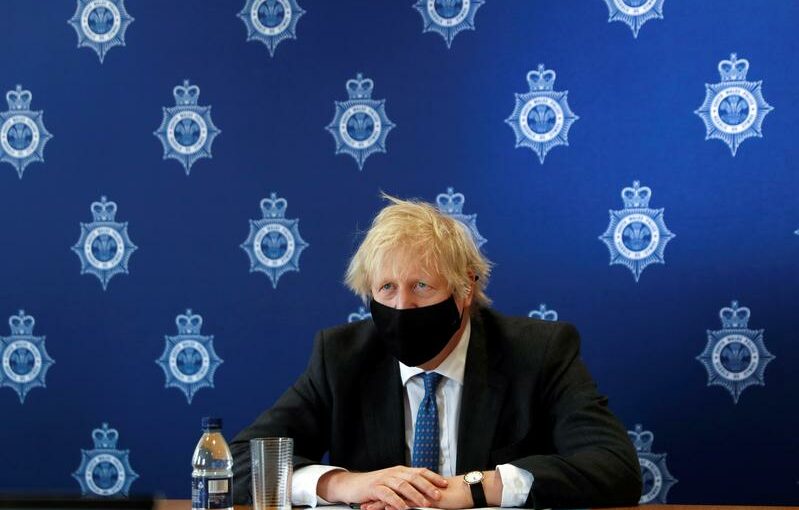LONDON (Reuters) – British Prime Minister Boris Johnson said on Monday his government would not abandon people and businesses who need government help during the COVID-19 pandemic, after he announced a provisional timetable for lifting English COVID restrictions.
Johnson’s remarks to parliament put pressure on his finance minister Rishi Sunak to extend a 70 billion pound ($98 billion) job furlough programme which is due to expire on April 30, well before most social-distancing restrictions will be lifted.
“I want to reassure the house (parliament), we will not pull the rug out. For the duration of the pandemic the government will continue to do whatever it takes to protect jobs and livelihoods across the UK,” Johnson said.
Sunak delivers an annual budget on March 3, when he intends to set out the future of government assistance programmes including the furlough scheme and a 20 pound weekly supplement to the country’s main unemployment benefit.
Both are measures which Sunak was keen to rein back last year before a surge in COVID cases in the autumn forced the government to extend support and belatedly tighten lockdown rules.
So far Sunak has spent more than 280 billion pounds on COVID measures including healthcare, support payments and tax breaks, and government borrowing in the financial year just ending will be the highest as a share of the economy since World War Two.
Under current lockdown rules people are encouraged to work from home where possible and hotels and restaurants are closed to the public, as are most non-essential businesses.
Johnson said that non-essential retailers in England would reopen no earlier than April 12 and bars and restaurants would be able to serve customers outdoors in limited numbers.
Full restrictions on the hospitality industry will not be lifted before June 21.
The government said in a written statement on lifting the lockdown that Sunak would set out more details of future support at the budget next week, as well as longer term fiscal plans.
“It is not sustainable to borrow at this current level over the medium term. This means the government has a responsibility, once the economy recovers, to return to a sustainable fiscal position,” the document stated.
Source: Read Full Article
